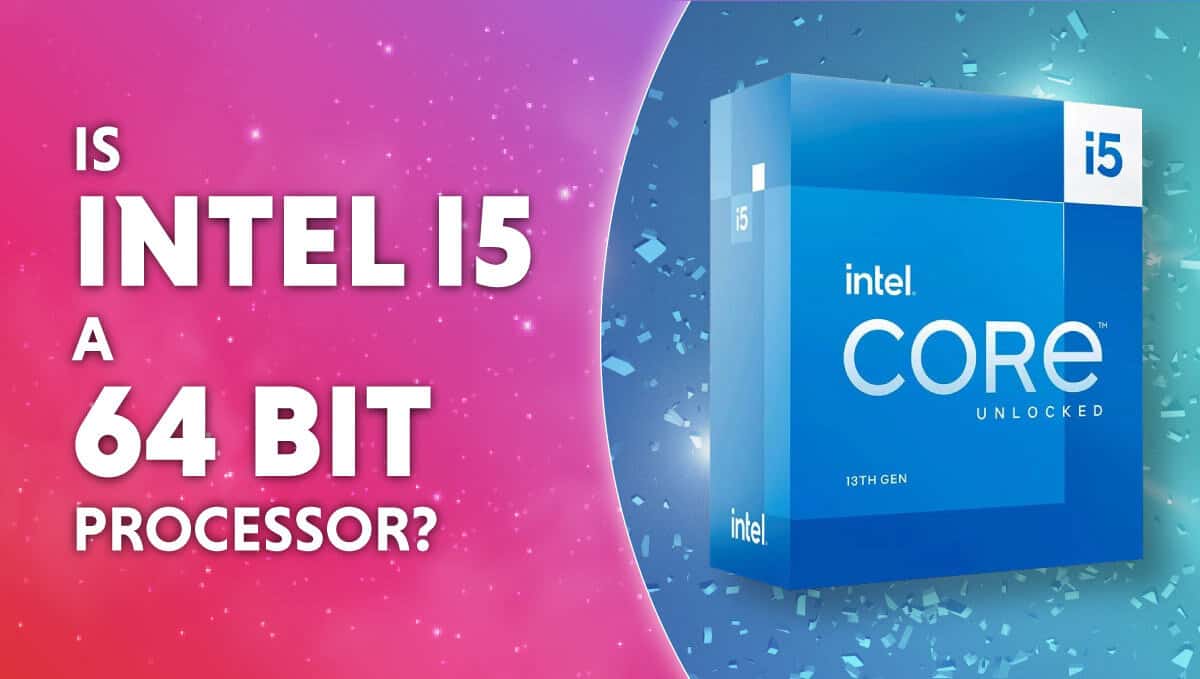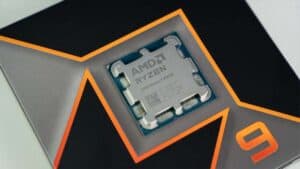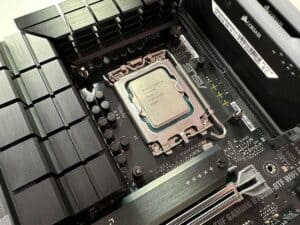Is Intel i5 a 64-bit processor?
Is Intel i5 a 64-bit processor? Let's find out.

WePC is reader-supported. When you buy through links on our site, we may earn an affiliate commission. Prices subject to change. Learn more
The Intel Core i5 family of processors features the company’s mid-range offerings, optimized to deliver powerful and practical performance for most consumer-level applications while also being relatively affordable. Today, an Intel i5 processor is a top option for you if you’re looking to build your first PC.
Now Read: Best CPU for gaming 2023
That said, Intel i5 processors have been around for quite a while now; the first generation was released in 2009. If you’re looking to get an older Core i5 processor, you may be wondering whether you’d be getting a 32-bit or a 64-bit CPU. Today, we find out: Is Intel i5 a 64-bit processor?
What does it mean for a processor to be 64-bit?
A bit is a binary digit that can only be 2 values, either 0 or 1. Bits are the building blocks of computer language. Two bits sequentially can have 4 (2^2) possible values, 00, 01, 10, or 11.
3 bits can have 8 (2^3) possible combinations, 4 bits can have 16 (2^4), 5 bits can have 32 (2^5), and so on.
The two most popular CPU bit configurations today are either 32-bit or 62-bit, with the latter being the immensely more popular of the two.
32-bit processors can only utilize and address (2^32) memory addresses. To do the math and explain in more simple terms, 32-bit processors only support a maximum of 4GB of system memory. You can attach more physical memory to the motherboard, but the processor won’t be able to utilize it.
62-bit processors, the modern standard, can address (2^64) memory addresses. This comes out to an incredible 16 Exabytes of maximum RAM, which is several orders of magnitude higher than the 4GB value supported by 32-bit processors.
Now, we don’t actually have systems that use or need that much RAM, which is why the current max is set to 128GB for the sake of practicality. 128GB is still more than enough for all modern applications.
4GB, on the other hand, is lackluster. A 32-bit processor would have a hard time doing anything other than office work or simple browsing – not only because it wouldn’t have enough processing power (it indeed wouldn’t, but we can leave that aside for a second) – but also because it simply wouldn’t be able to load the contents required to run larger applications into memory.
Playing games and using resource-intensive software would simply be out of the question. Here’s how much RAM you really need for gaming in 2024.
Are Intel Core i5 processors 64-bit?
Fortunately, all Core i5 processors, regardless of model, generation, or variant, are indeed 64-bit processors.
As mentioned previously, the Core i5 lineup launched in 2009. 64-bit was the standard at that time as well. 32-bit processors were impractical even back then, and today, you would be hard-pressed to find one.
So, even if you’re looking to get an older Core i5 processor, rest assured that it is indeed built on 64-bit computer architecture and will be able to support more than 4GB of memory. Even the oldest i5 can support 32 Gigs of DDR3 memory.
If you’re going with an i5 processor, I recommend sticking to the 10th gen and above. In other words, I recommend you go with the i5-10400F at minimum. This is a powerful 6-core, 12-thread processor that you’ll be able to find at a very budget-friendly price point. Core i5 processors belonging to even older generations will cost only slightly less but lose out on a ton of performance.











